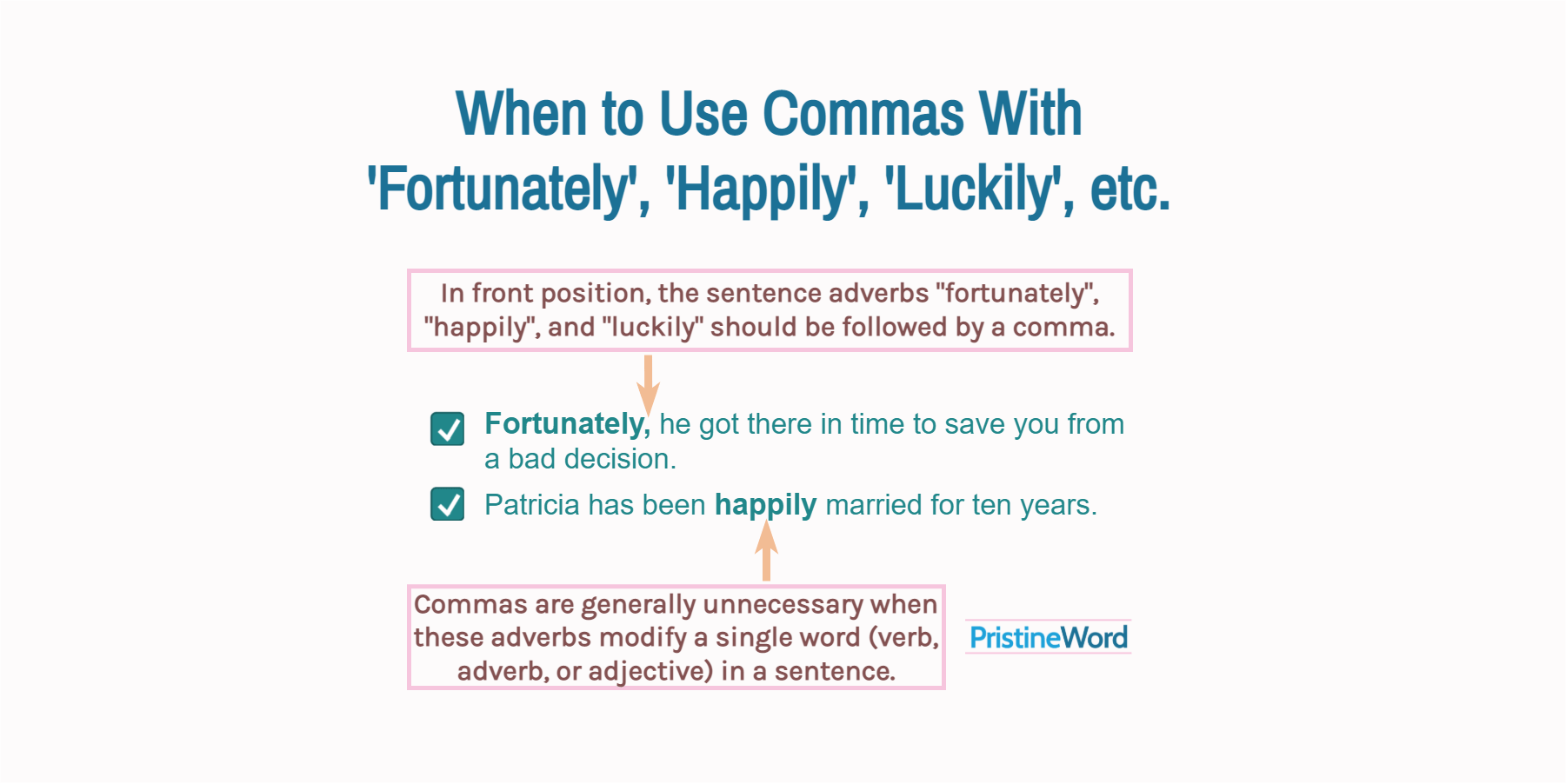In front position, the sentence adverbs "fortunately", "happily", and "luckily" should be followed by a comma. Commas are generally unnecessary when these adverbs modify a single word (verb, adverb, or adjective).
In front position, the sentence adverbs "fortunately", "happily", and "luckily" should be followed by a comma.
Fortunately, he got there in time to save you from a bad decision.
Fortunately he got there in time to save you from a bad decision.
Commas are generally unnecessary when these adverbs modify a single word (verb, adverb, or adjective).
Patricia has been happily married for ten years.
Contents
1. Commas With 'Fortunately', 'Happily', and 'Luckily'
Frequently, the adverbs "fortunately", "happily", and "luckily" modify a whole sentence or clause—instead of a single word.
Luckily, she wasn't hurt in the accident.
Sentence adverbs usually go at the beginning of a sentence and should be followed by a comma.
Happily, Jennifer managed to get help when her car broke down in Kansas.
Happily Jennifer managed to get help when her car broke down in Kansas.
Sentence adverbs are different from regular adverbs. They apply to a sentence as a whole to reflect the judgement, emotion, or opinion of the speaker.
Fortunately, she changed her life for the better.
Add a comma before and after a sentence adverb in mid-sentence or mid-clause.
My sister, luckily, found the perfect boyfriend.
When joining two independent clauses in a sentence, place the sentence adverb at the beginning or in the middle of the clause it applies to.
David was late to the train station, but, luckily, the train was delayed as well.
At the end of a sentence or clause, sentence adverbs, such as "luckily", "fortunately", or "happily", should be preceded by a comma. By using this position, the writer may create a more informal feel.
It was a bit risky, but everything went well, fortunately.
When functioning as a regular adverb, to modify a single word, we do not generally use a comma to separate the adverb from the verb, adjective, or adverb it modifies.
The way a rural community works together could not be more happily described.
Recommended: When to use commas with "sadly", "unfortunately", "regrettably", and "unhappily"
2. Commas With 'Mercifully' and 'Thankfully'
Follow the same guidelines when using other sentence adverbs, such as "mercifully" or "thankfully"; thus, use a comma only for adverbs modifying the entire sentence or clause.
Mercifully, Alice said nothing; she only stood close to me and held my hand.
Thankfully, no one was hurt in the accident.
No comma is necessary when using them, as regular adverbs, to modify a single word ("quiet" and "accepted" in the examples below).
After a loud day in the park, our home was mercifully quiet.
She thankfully accepted a correction in the course of the interview.

